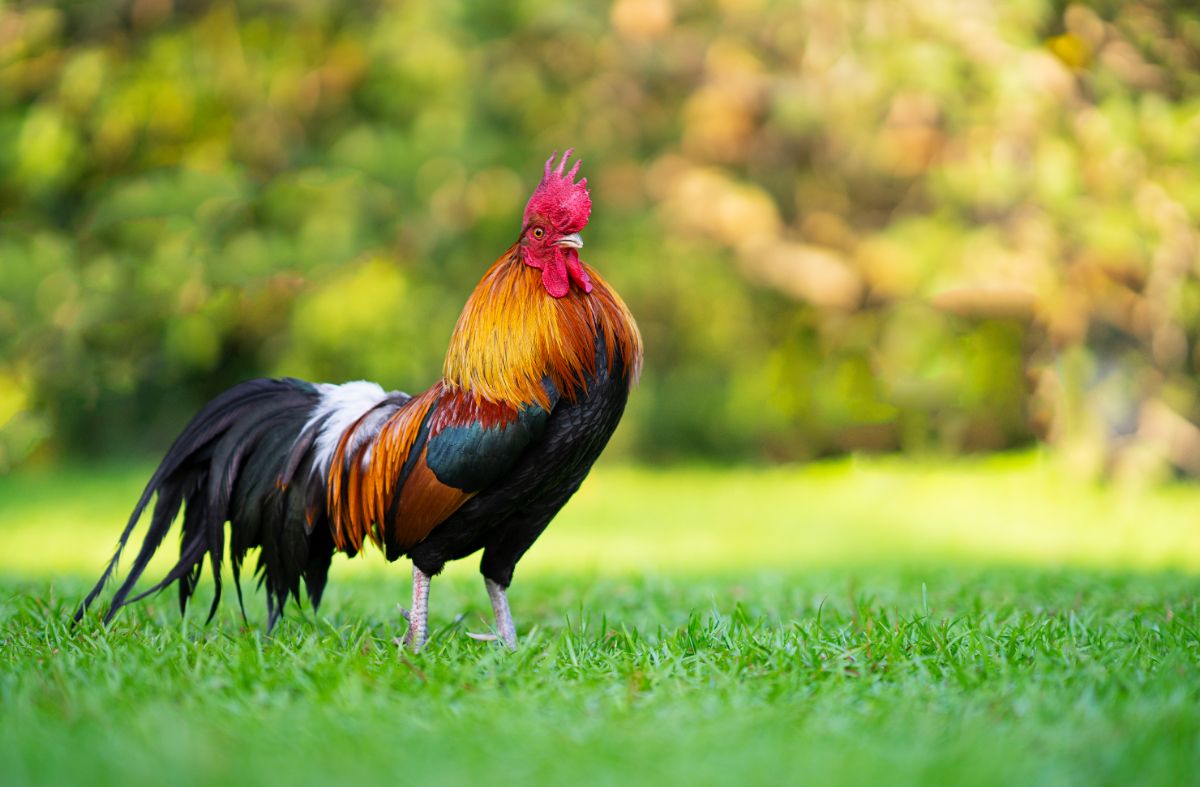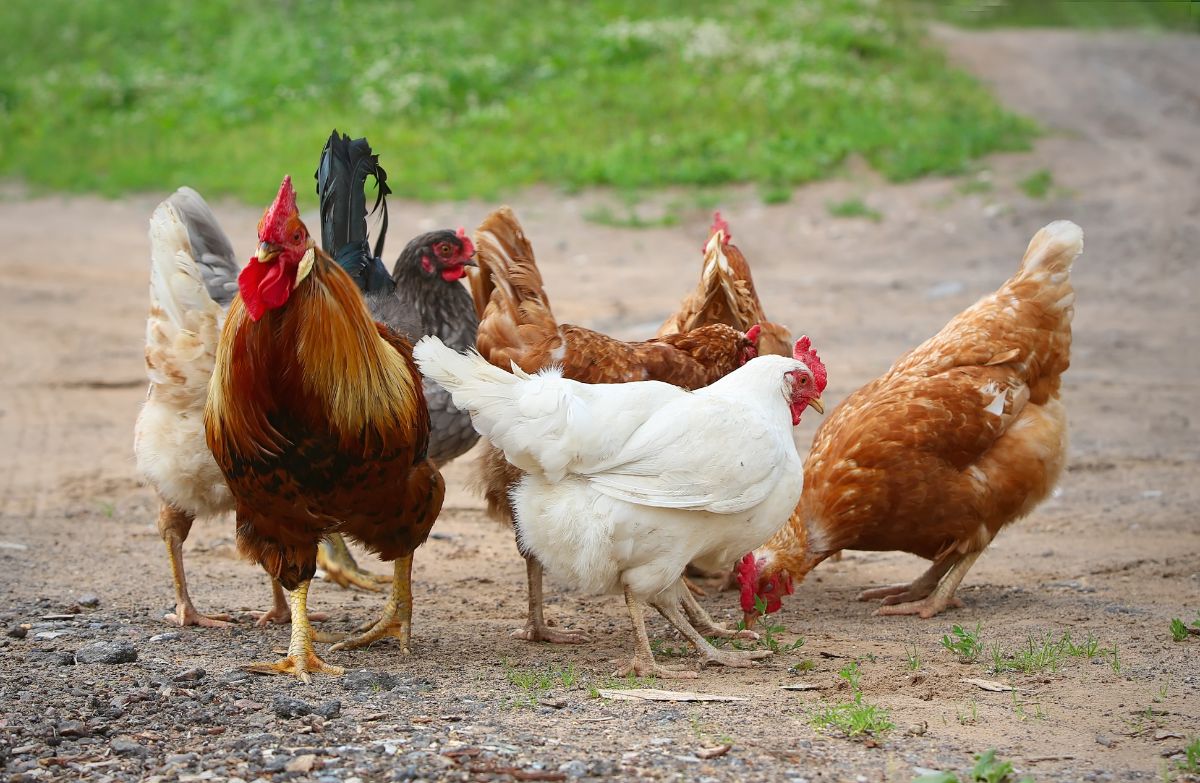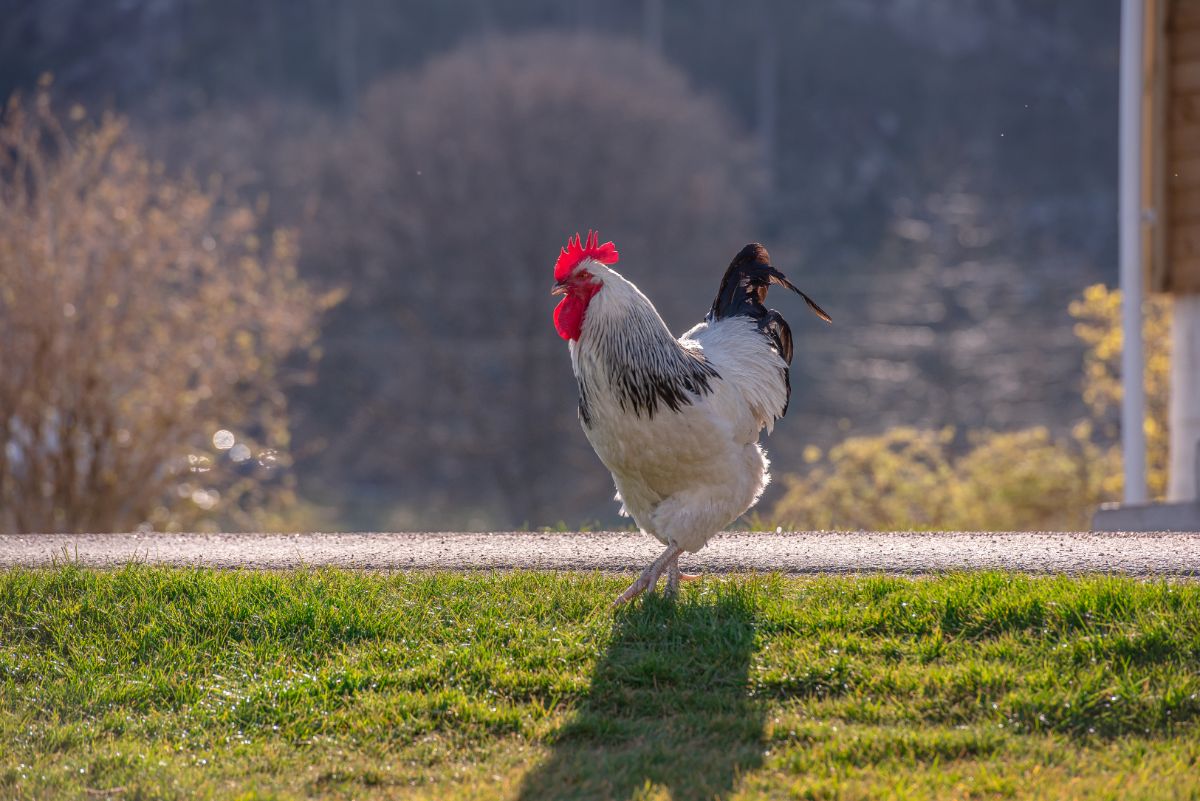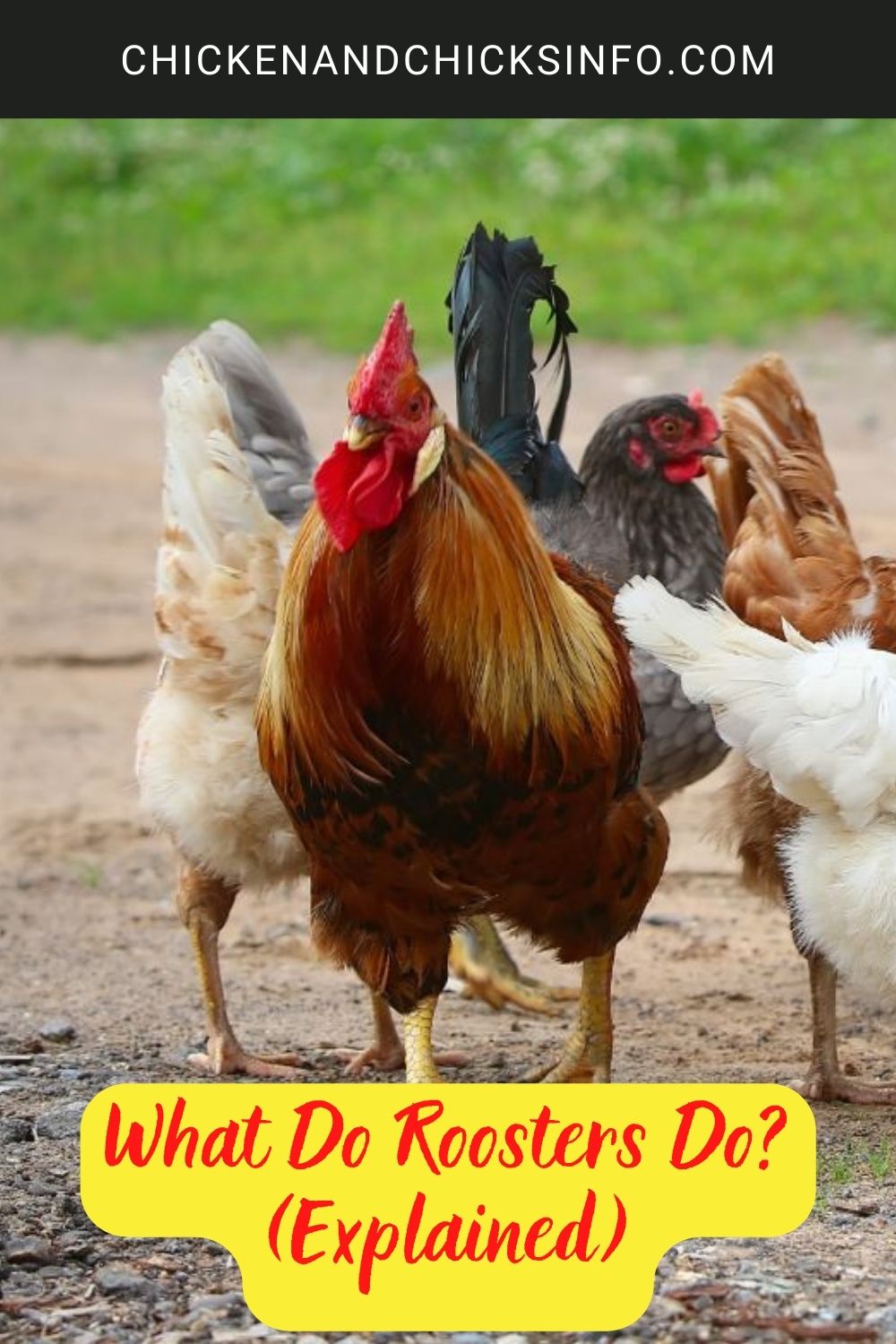
Roosters are colorful, interesting, and sometimes a little crazy - but what do roosters do exactly?
Should you have a rooster in your flock?
It's hens that tend to get all the good press as they're the ones that lay eggs and live happily together in larger numbers.
But there are a number of reasons why you may want a rooster (and some why you might not), as I'll explain:
Jump to:
What Do Roosters Do?
This is an interesting question. I think a lot of us think about what most of our pets or animals do and think.
I've always found roosters interesting, and they certainly play a crucial role within a flock of chickens.
They're iconic in so many ways, from their look to their noisy early morning wake-up crowing - but nowhere near as popular as hens.
If you've ever wondered what roosters do all day, what their role is within a flock, and what else they get up to, I can explain!
What Does a Rooster Do All Day?
If you were to observe a rooster all day, here's what you'd see them doing:
Crowing
Let's start with the most obvious thing that roosters do, and it's either a sound you love to hear or absolutely hate - "cock-a-doodle-doooooooo!"
Roosters crow early in the morning, typically around 4-5 am.
They make this early morning call as they follow their natural circadian rhythm and make their presence known.
They also like to crow sporadically throughout the day as a way of announcing their presence and letting other roosters (and any potential predators) know that this is their territory.
Crowing also has the effect of boosting a rooster's confidence and making him feel more important within the flock.
You can muffle a rooster's crow using a no-crow collar< more information in that post.
Scratching Around

The next thing you'll see a rooster doing - along with all chickens - is scratching around in the dirt.
They do this to find food and because they love exploring, but also to keep their claws nice and sharp.
Roosters have very sharp claws on their feet which they use for fighting (more on that later), so it's important that they keep them in good condition.
If they find a tasty little bug or something edible, you'll see how excited they get and quickly they'll gobble it up before another chicken does.
Mating
Let's talk about the birds and the bees for a moment. One of the things a rooster does throughout the day is mate with hens.
During mating season, a rooster will typically mate several times a day with several different hens.
Mating involves the rooster mounting the hen and using his claws to grip her onto the feathers on her side.
You may not have known what was happening at first, but it becomes fairly obvious when you've seen a rooster mating a few times.
Related - Contrary to what you may have heard, you don't need a rooster for hens to lay eggs!
Security

One of the key roles a rooster plays is flock security.
This is more essential in the wild where there are more predators and other risks to hens, but it's still something they will do in the backyard setting.
Roosters may not look like they're patrolling, but they are on high alert for predators and will make plenty of noise if they do feel threatened.
They will also flap their wings and cause a stir, and even charge or be aggressive towards anything - that's animals or you - that they feel is a potential threat.
Eating and Drinking
This is an obvious one, but roosters eat and drink throughout the day.
Just like hens, roosters are omnivores and will eat chicken feed, as well as any bugs or other insects they can find while scratching around.
As long as you're providing enough feed, chickens tend to be good at just eating what they need.
Related - Can you give your roosters layer feed?
Fighting (Hopefully Not)
And finally, one of the things that roosters do - which hopefully you won't see too much of in your flock - is fighting.
Roosters are larger than hens, and they are equipped with strong, sharp claws, beaks, and spurs on the back of their legs.
All of these can be used as weapons in a fight. If you have more than one rooster, it can quickly get out of control if they fight each other.
This is why it's best to only have one rooster per flock, or at least one rooster for every ten hens.
Roosters can also be pretty scary when they turn on us. If you have an aggressive rooster, you should take steps to get his aggression under control.
In Summary
So, you now know most of the things that roosters do.
They crow to announce their presence and make themselves feel important, scratch around for food, mate with hens, protect the flock from predators, and eat and drink.
And if you're not careful, they may even turn on you!





